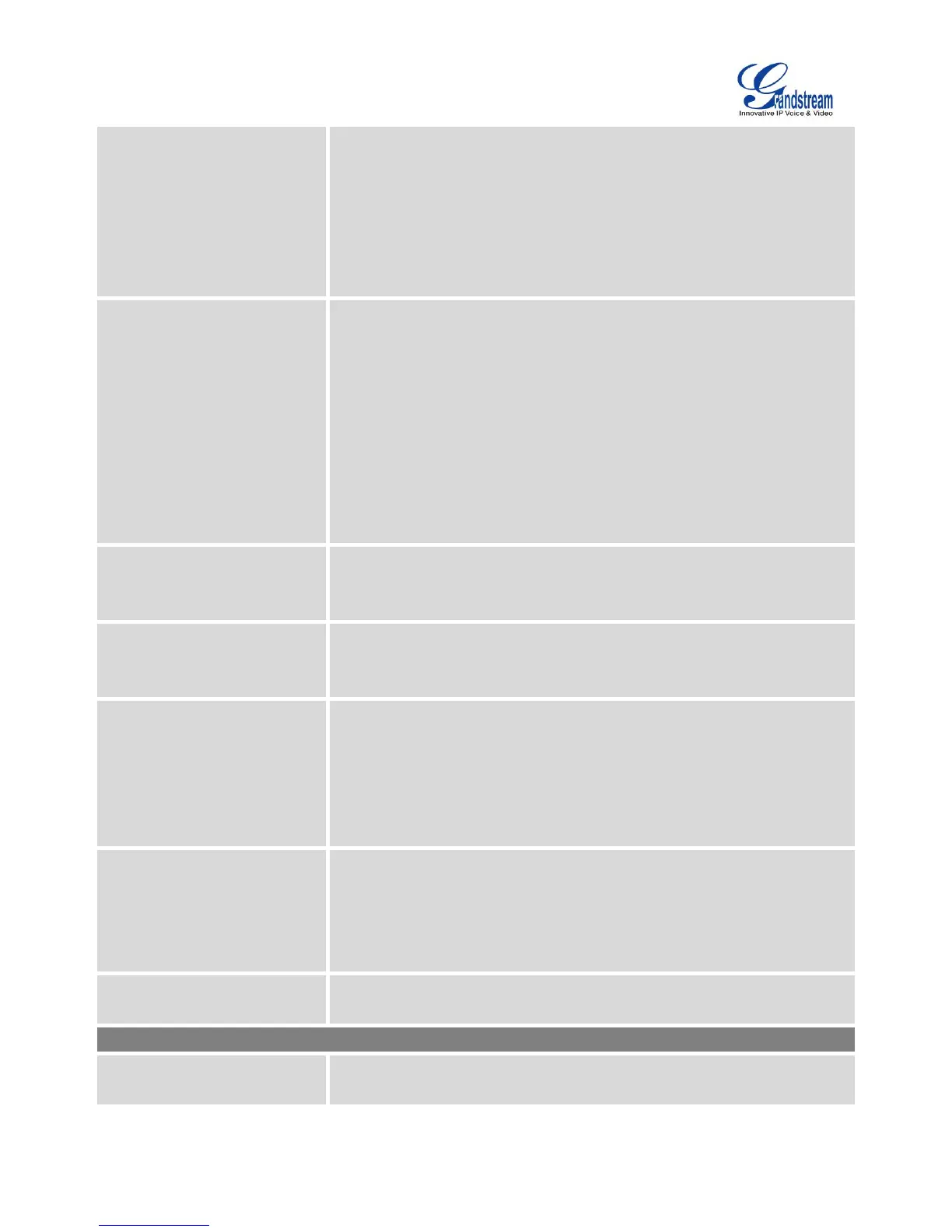Firmware Version 1.0.1.12
UCM6510 IP PBX User Manual
“Specific” has higher priority to “Office Times” if there is a conflict in
terms of time period.
Specific time can be configured on the bottom of the extension
configuration dialog. Scroll down the add Time Condition for specific
time.
Office Time and Holiday could be configured on page Settings->Time
Settings->Office Time/Holiday page.
Configure the number of seconds to ring the user before the call is
forwarded to voicemail (voicemail is enabled) or hang up (voicemail is
disabled). If not specified, the default ring timeout is 60 seconds on the
UCM6510, which can be configured in the global ring timeout setting under
web GUI->Internal Options: General Preference. The valid range is
between 5 seconds and 600 seconds.
Note:
If the end point also has a ring timeout configured, the actual ring timeout
used is the shortest time set by either device.
Enable automatic recording for the calls using this extension. The default
setting is disabled. The recording files will be saved in external storage if
plugged in and can be accessed under web GUI->CDR->Recording Files.
Skip Voicemail Password
Verification
When user dials voicemail code, the password verification IVR is skipped.
If enabled, this would allow one-button voicemail access. By default this
option is disabled.
This mode can be used for devices that support hot-desking feature. For
example, the GXP21xx series phones support hot-desking feature by
turning on “Public Mode”. On the device, users can log in and log out using
the SIP UserID and password. If enabled on the UCM6510, the SIP
Password for the extension will accept only alphabet characters and digits;
AuthID will also be changed to the same as Extension.
If selected, this extension will be disabled on the UCM6510.
Note:
The disabled extension still exists on the PBX but can’t be used on the end
device.
Select which Music On Hold class to suggest to extension when putting it
on hold.
Configure the first name of the user. The first name can contain characters,
letters, digits and _.

